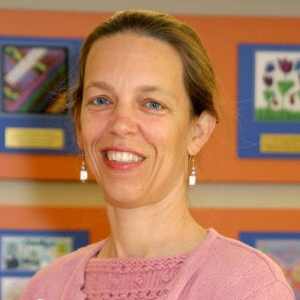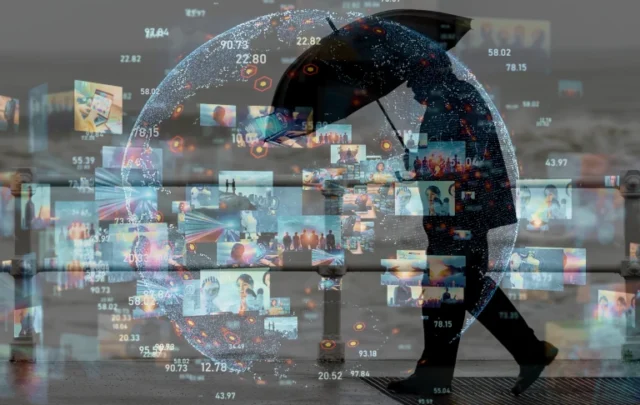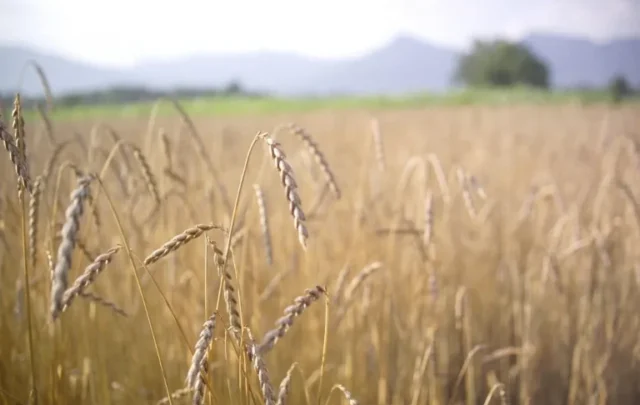
We’re caught in the squeeze right now.
Climate change is advancing at an incredible speed. We know we should do something, but we lack the political will to do what it takes to hold it to 2°C. UN committees are now being counseled to prepare for 4°C of warming. To keep it survivable, there’s got to be a powerdown — starting today.
Meanwhile green-tech enthusiasts cheer the rapid rate at which certain countries are installing renewable energy infrastructure. But reports are now surfacing of shortages in the rare earth ingredients needed to make that renewable infrastructure. We don’t have enough rare earth materials to replace the whole fossil infrastructure and continue on our current level of consumption. No one dares speak the little secret: Even with renewables, there’s got be a powerdown.
Shale oil is environmental desecration. But people are willing to consider it because there is potentially vast amounts of money in it because the easier-to-get-to oil is running out. Along with stopping fracking, there’s going to be a powerdown. But no one is talking about that part.
We should "keep the coal in the ground" scientists are telling us, and activists have (rightfully) picked up the cry. But no one never mentions the other side of the Stop Coal equation: the powerdown. We have to start talking about what we are willing to give up.
Industry charges forward: expand-expand-expand the airports, the freeways, heedless of the need for powerdown. New extractive drugs, new processed foods, new fashions and ways to consume, more-more-more energy consumption. And consumers and the market applaud it all. They’re inventing new biotech, new robotics, new high tech — all inextricably dependent on energy. Powerdown is such a big secret, that it can’t even be a talking point; it draws a blank stare.
But powerdown has got to happen. And really, really soon.
Powerdown means shifting to tools, techniques, lifestyle habits which use LESS power. It means reducing our energy consumption overall. Across the board. In totality.
Powerdown doesn’t mean convincing ourselves we’re going to convert our entire fleet of fossil automobiles over to an all-electric fleet, because about half of the fossil energy and greenhouse gasses embodied in each vehicle is spent in manufacturing it. Rather, powerdown means shifting to bicycles and human-powered transportation and reorienting our lives and our cities to need LESS transportation.
Powerdown doesn’t mean "more efficient" aircraft. Powerdown means no-fly pledges and stay-cations and moving closer to family. It means foregoing taking the kids abroad; and when your friends mention they’re thinking of doing so, it means responding in a way that makes it clear that it’s socially UNcool. 
Powerdown doesn’t mean higher tech, because that requires vast high-powered labs and vast globalized supply chains and more-more-more rare earth materials behind the scenes to manufacture all that stuff. Stuff which will so quickly be outmoded.
Powerdown means inventing tools that run on zero energy, tools made from repurposed materials that humans already have extracted, tools that are durable and repairable because this isn’t a short-term fix. Rather, humanity is in this powerdown game for the long haul.
On a more intangible level, powerdown brings with it inevitable shifts in our economy. We can no longer have economic structures be dependent on more-more-more volume and more-more-more profits. Powerdown means a re-evaluation of what is important: Sufficiency. Basic needs met. Peace and harmony. (The biggest challenge is that last one.)
Powerdown means shifts in other systems too. It means parents and school officials becoming far less enchanted with the glossy hollow call of more-more-more high tech, and much more realistic about teaching the skills of powerdown. Right now we call it "green" to teach tiny kids to plant seeds in recycled plastic bottles, lessons that are completely disconnected from the reality of ecosystems, because it’s so cute. That’s much easier than making part of the high school curriculum the deep skills necessary to pump organic yield, like soil building, crop rotation, intensive urban ag spacing, season stretching, and food preservation. But we’ve got to do it.
Powerdown means our schools Just Saying No to corporate "donations" which strong-arm administrators and parents, and influence students, to place false hopes in the Big Corporate Way. It means teaching Local Foods and Buy Local, not as a "pretty-and-greener it-would-be-nice" feature, but as the core reality of our children’s future. Powerdown means shifting direction today.
Powerdown means political officials finding the backbone to turn away from big corporate dollars, to turn instead toward serious preparation for the realities of our future. Rather than trying to help disadvantaged communities climb on board old-fashioned energy-intense ways, powerdown means publicly and openly declaring that was a false mirage. Powerdown means acknowledging the folly and backing away from the cliff. It means helping all citizens make a direct shift into a more appropriate future.
Powerdown means faith communities embracing their role of cultivating peace and healing the world. It means preaching that large SUVs and use-it-once consumerism and large families are unholy, socially unjust, and sacrilegious. Faith communities can help us acknowledge that the false mirage wasn’t satisfying; that pursuit of it has made us less than who we are meant to be. Powerdown means Practice — as a community — of the lifestyle habits which lead to a peaceful shift: reusable dishes, onsite composting, food not lawns, bike/walk to gatherings, local food potlucks, simple living, connection.
It’s much easier to talk about shiny new stuff like the latest electric car model, or whether bullet trains are a good idea. It’s much easier to chat up the fantasy of high-rise hydroponic food towers, oblivious to their energy demands. But powerdown is here. Powerdown is now. We need to use the term widely.
It’s time to have the tough conversations. Time to get the wider public familiar with the concept. The writing is on the wall: Powerdown is inevitable. If we want any hope of achieving it peacefully, we’ve got to start shifting — minds and physical infrastructure — today. Powerdown: Say it. Begin it.
























